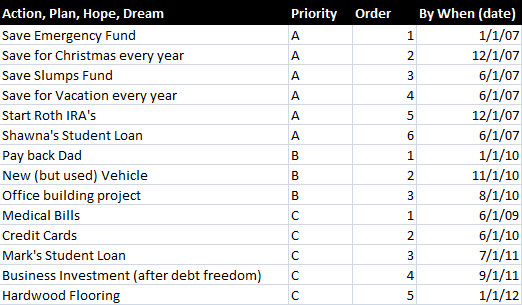A while back someone asked me if it is easier to control our finances (spending) because Shawna homeschools our kids and I work from home a lot. At first I didn’t realize where that question was coming from. But then I realized it was an attempt to make our situation different, or easier in their eyes, to justify a lack of discipline in their own situation.
My initial thought was yes it is easier – Shawna doesn’t typically go out to lunch with the girls like she might at a job, and she doesn’t use a lot of gas money to get back and forth to work. I thought the same is true for me since I get to work from home a lot.
But on second thought I realized, you know what – Shawna still spends just as much. It isn’t easy putting up with kids all day so she is always having to get them out of the house, which ends up being activities that cost money. She also does work part time so there are moments when it is more convenient to grab food on the go. All that takes driving around as much or more than the typical job working mom. So we really don’t have an advantage there.
Even though I work from home a lot of the time I still put about 20,000 miles per year on my vehicle, most of those are miles that are work-related (going to meet with customers etc). Not to mention I have WAY more un-reimbursed job-related expenses than the average person. I get to write some of those expenses off but that doesn’t mean I get it all back, and the other 12 months of the year it creates a unique cash flow challenge.
So after thinking about that question, “is it easier for us”, my response is NO! Just because our life circumstances are not exactly the same doesn’t mean the challenges of managing money are THAT different. We still have to live with a plan, giving and saving and spending within our means. Don’t let others excuse their lack of discipline based on your circumstances.


